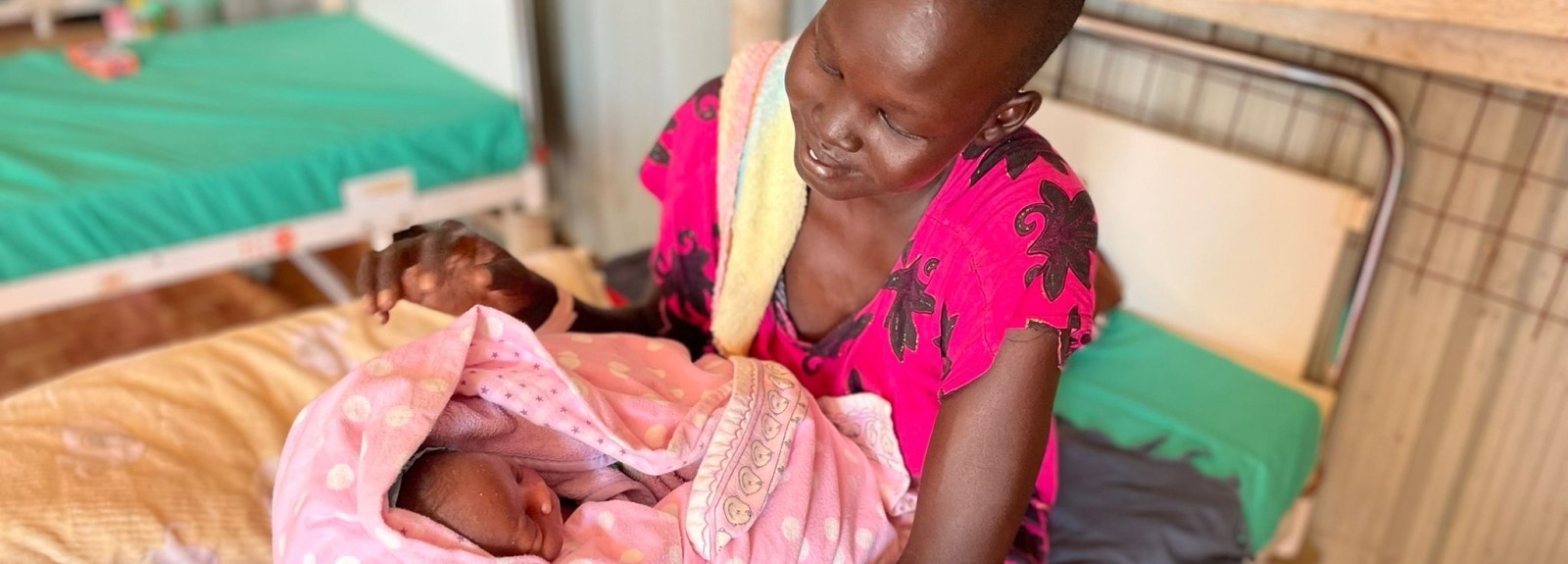IMA World Health recognizes the importance of working with men and boys to combat gender-based violence (GBV). In South Sudan, such partnership across all genders is especially critical as conflict-related sexual violence against women and girls is overwhelming and systemic.
In 2019, IMA World Health began implementing the UNFPA-funded Support of Provision of Reproductive Health and Gender-Based Violence Services in Bor State Hospital and Mingkaman Protection of Civilians Sites Project in South Sudan. The project supports internally displaced people (IDPs) and host communities by strengthening the capacity of local health facilities and reproductive health clinics to implement the Minimum Initial Service Package for Reproductive Health, which includes the provision and referral of basic and emergency obstetric care. In partnership with the Ministry of Health and local support groups, a one-stop center provides urgent services for survivors of GBV, including medical care and legal services. Through these various activities, more than 49,000 people have been reached with GBV services.
With UNFPA’s continued support, we have expanded this work in 2022 to prevent sexual exploitation and abuse as well as to establish safe spaces for women and girls, where they can receive training on income-generating and other empowering activities.
The project expansion not only promotes and enhances protection for survivors but provides opportunities for skill-building and collective action, while engaging men and boys within the local communities.
By partnering with local leaders, the project encourages engagement and ownership among community and political leaders in combatting GBV and ending child marriage. Community Action Groups are also raising awareness about ending forced marriage, domestic violence, intimate partner violence, denial of services and psychological violence.
In one instance, John (name changed), whose wife had received services from IMA World Health in Bor, was invited to a community dialogue about social norms relating to women’s and girls’ rights. After learning more about the importance of GBV prevention, John became part of a Community Action Group, raising awareness with his peers on forms of GBV, including intimate partner violence and early and forced marriage.
This role has changed me. Now I am a transformed person who also talks to fellow men to keep their families safe and free of violence so that their children grow with love and respect.
John’s story is powerful. We need to strive for partnership between all genders. By engaging men and boys in programs that promote gender-equitable attitudes and behaviors, there is greater possibility for long-term, sustainable change. Such programs challenge harmful notions about manhood and masculinity by involving them in program design and in ongoing communications and advocacy work. This can lead to healthier relationships and partnerships within homes and families.
IMA World Health will continue to strive for a future that is free of GBV in South Sudan, engaging with men and boys as allies and partners in eliminating violence. Gender equality is not a women’s issue, it is an issue for all genders and for all people.
Learn more about our strategy for addressing gender-based violence: Gender-Based Violence Technical Approach


